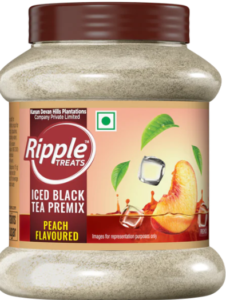Culturally Ancient
Our Collection
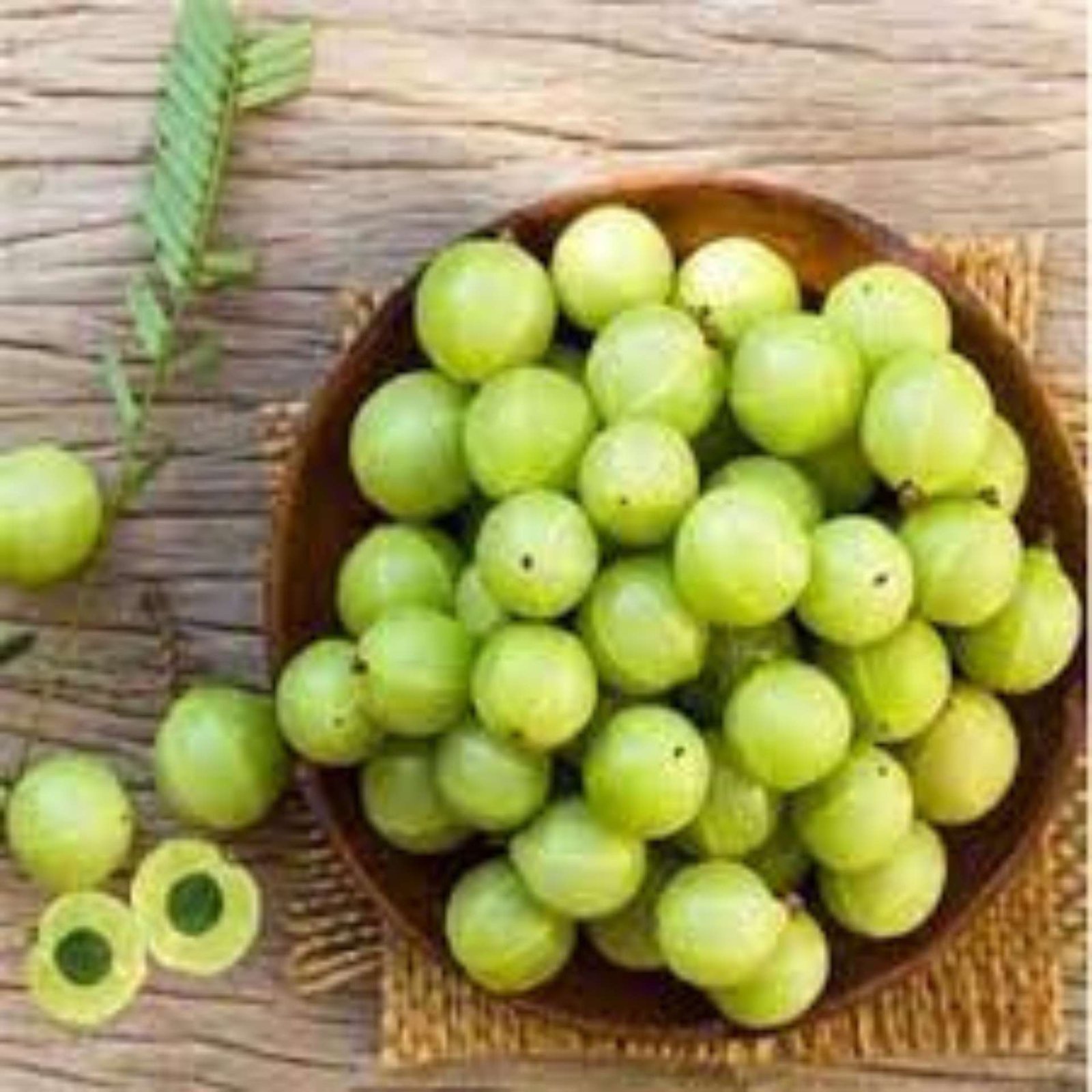
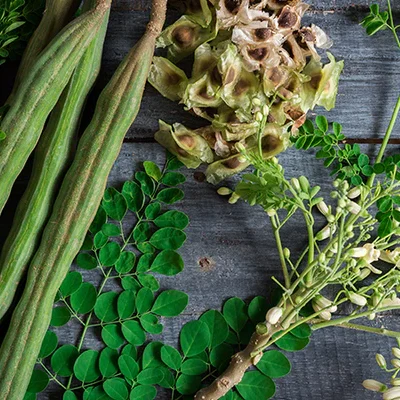
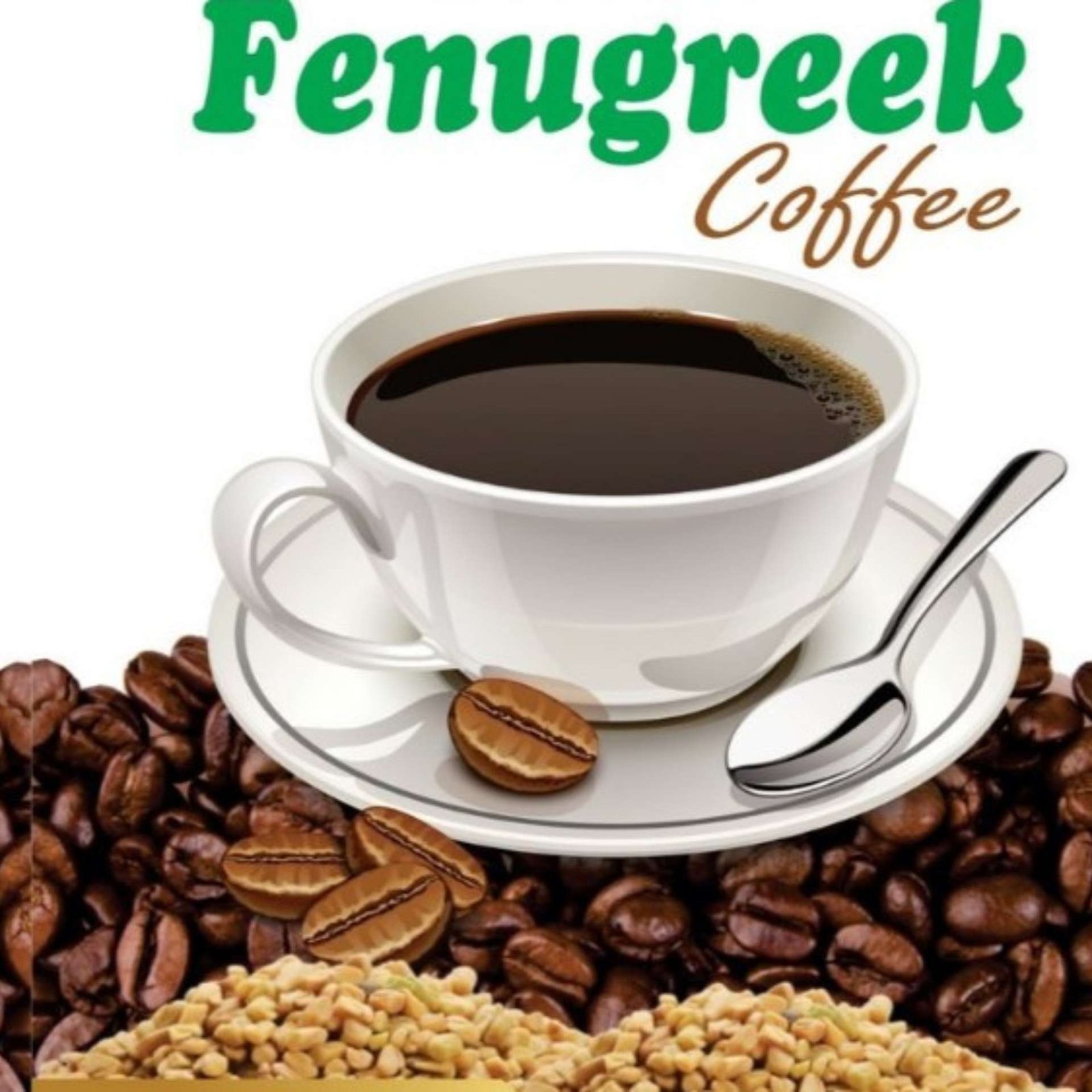
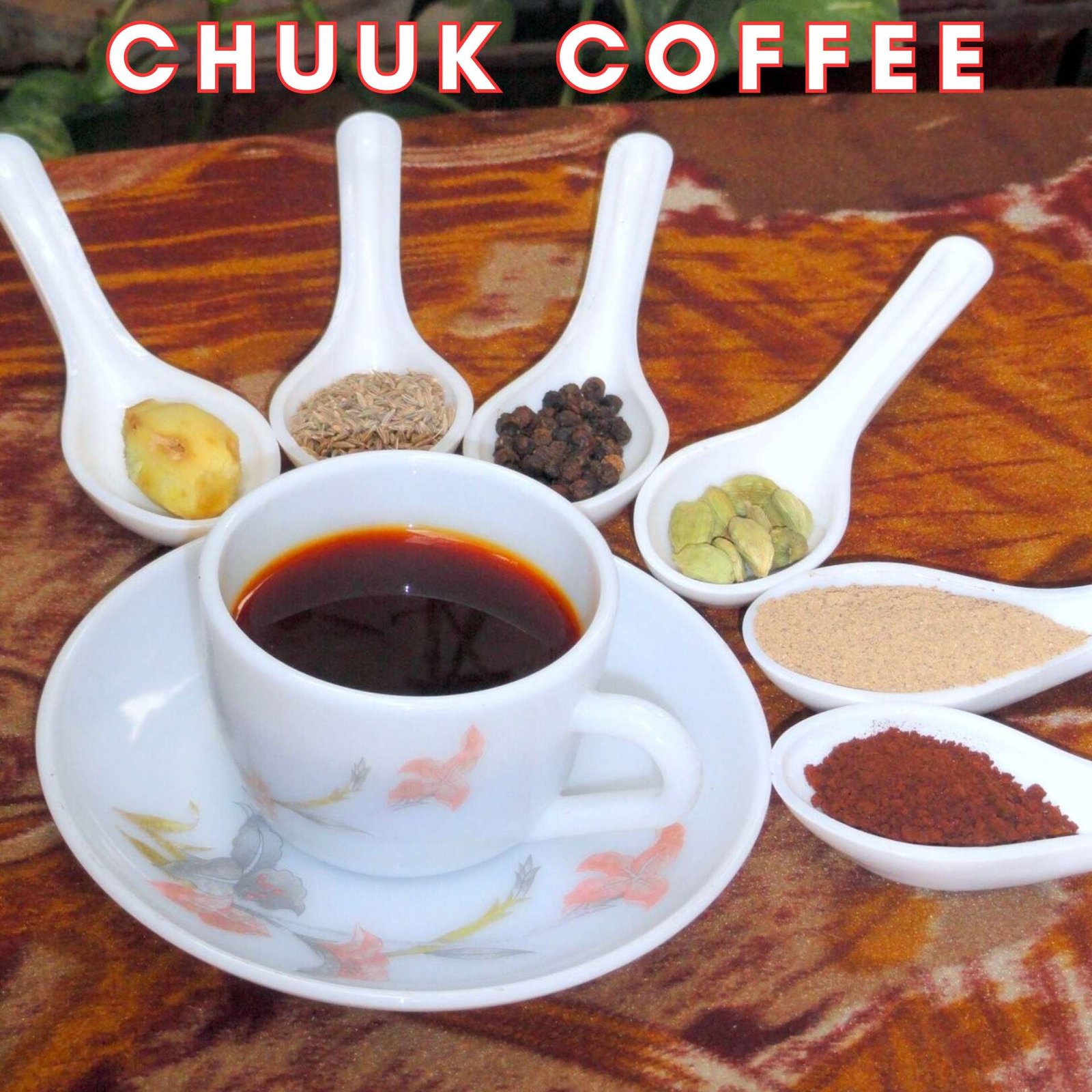




Goose Berries
- Amla powder is known for its high levels antioxidant and vitamin C content.
- Amla contain more than 80% water along with protein, minerals, carbohydrates and fiber.
- Amla is also a good source of iron, phosphorus, potassium, copper, vitamin A and E.
Product Description
- Promotes immune function.
- Amla juice is a great source of vitamin C
- which is a water-soluble vitamin that acts as an antioxidant.
- Enhances liver health.
- Supports healthy digestion.
- Promotes heart health.
- May increase hair growth.
- Improves kidney health.
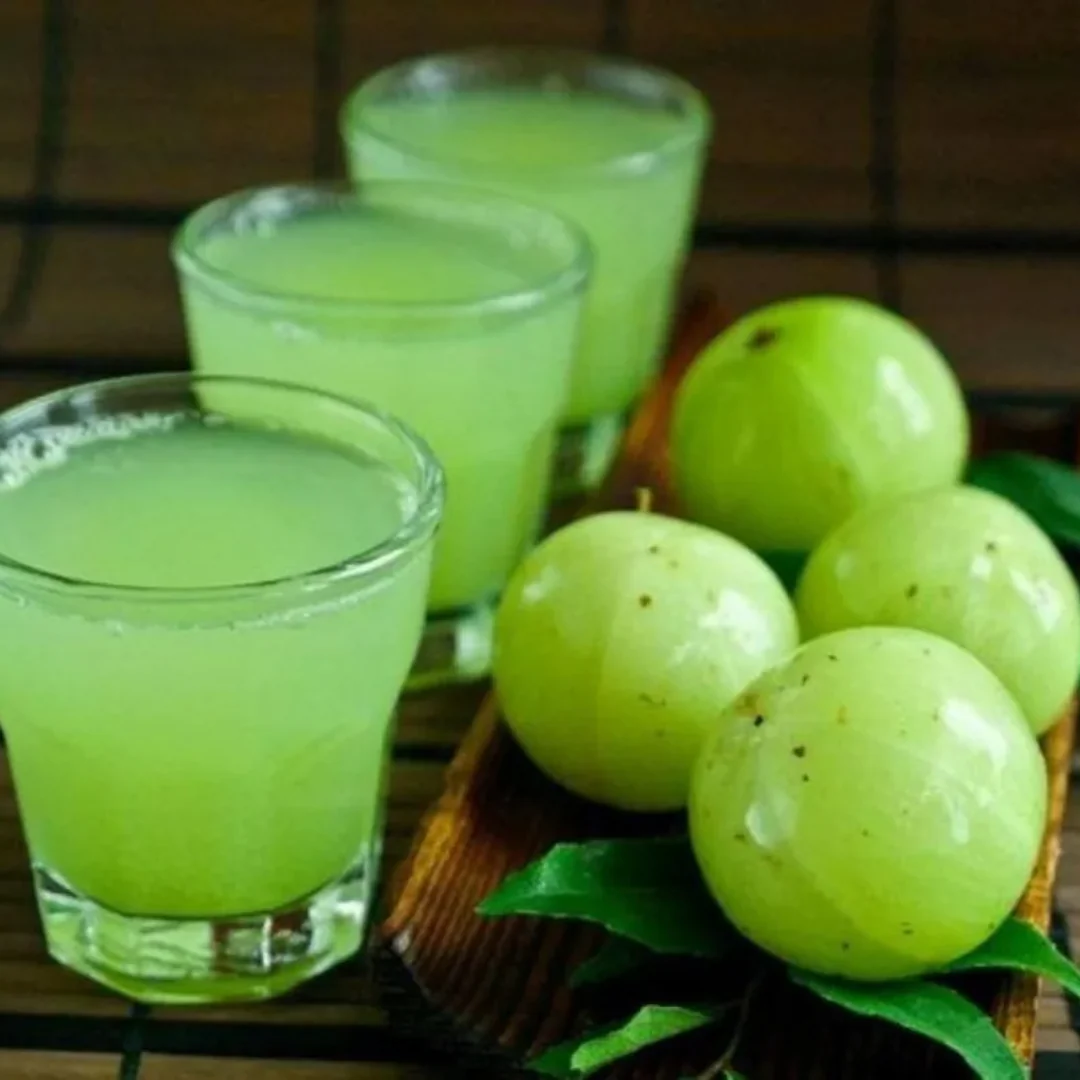

Amla, also known as Indian gooseberry. It is high in vitamin C, antioxidants, and other nutrients that have various health benefits. Some potential benefits of amla include:
- Boosting the immune system: Amla is a rich source of vitamin C, which helps to support the immune system and protect the body against infections.
- Improving digestion: Amla is a natural laxative and can help to relieve constipation and improve overall digestion.
- Lowering cholesterol: Amla has been shown to lower cholesterol levels in the blood, which can help to reduce the risk of heart disease.
- Promoting healthy skin: The high levels of antioxidants and vitamin C in amla can help to protect the skin from damage and promote a healthy, youthful appearance.
- Supporting eye health: Amla is also good for eye health and is known to prevent eye related problems like cataract, and also improve eyesight.
- Supporting hair health: Amla is known to strengthen hair and reduce hair fall.
moringa
Introduction
In our country, around 194 million people go hungry every day. The COVID situation created this scenario more tragic. Most of the population lack feasibility and affordability for sufficient and nutritious food to maintain their health, i.e., immunity. 50% of children and women from the tribal community are anemic. The COVID-mediated unemployment created a problem of food security among the poor; it will be fulfilled by some national programs but still, the nutrient insecurity problem remains as it is. During the COVID pandemic situation, the immunity booster remains a trending topic. Most of the promoted advertisements and posts of immunity boosting during pandemics nearly all have commercial interest. So there is an urgent need to provide people and make them aware of easily available natural green nutritious supplements available in their local area. This review will take account of commonly available nutritional supplements from the “Moringa” plant along with its pharmacological components; its potential as antioxidants, antimicrobial, and anticancer agents; its mode of action; and its important commercial importance.
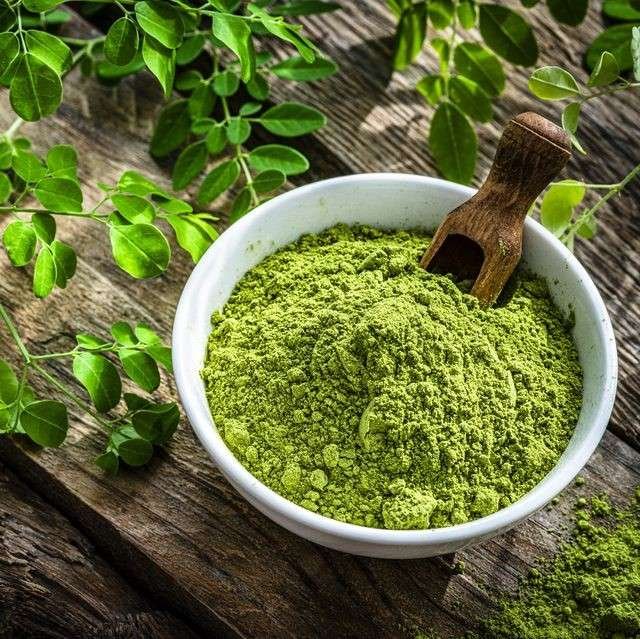
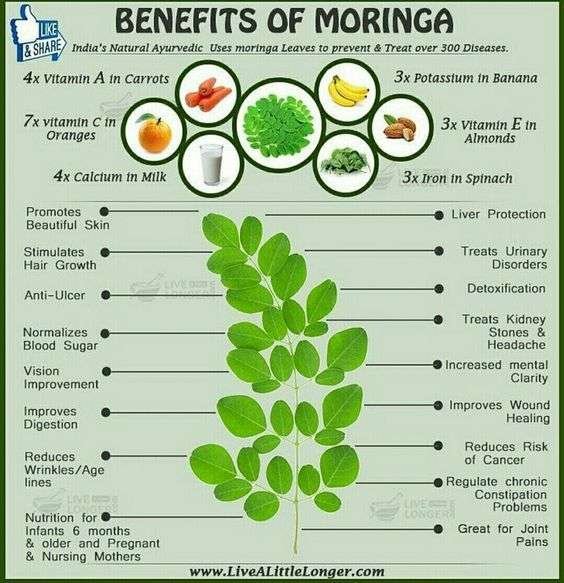
The food rich in nutrient content, as well as secondary metabolites, comes in the category of nutraceuticals. Such foods provide nutrients for the average growth and development and provide high health benefits and prevent humans from chronic diseases. Recently, Meireles et al. reported that Moringa oleifera improves the mental, emotional, energetic, and spiritual levels, which altogether have a strong effect on personality development. Similarly, Moringa oleifera had antidepressive and anxiolytic effects; hence, this tree is considered an adaptogenic and antistress herb.
Macro Morphology
A medium-sized tree with spreading profuse branches. Stem covered with thick, corky whitish brown bark, which is fissured vertically. Leaves are tripinnately compound, 30–50 cm long. Rachis thickened and articulated at base; leaflets small, opposite, elliptic to obovate with entire margin, 1–2 cm long, mucronate or obtuse apex, glabrous on both surfaces, petiole sheathing at base. Flowers in large terminal or axillary panicles. Calyx 5, gamosepalous, cup-shaped, unequal 5-lobed segments, petaloid, linear-lanceolate 10.12 mm long, reflexed. Petals 5, spatulate, unequal, 10–15 mm long, creamy white. Stamens 5 alternating with 5–7 staminodes. Gynoecium tricarpellary, syncarpous, ovary oblong, style cylindric. Pods pendulous, cylindrical to triquetrous, linear, straight, 9-ribbed, up to 50 cm long. Seeds 3 angled with wing.
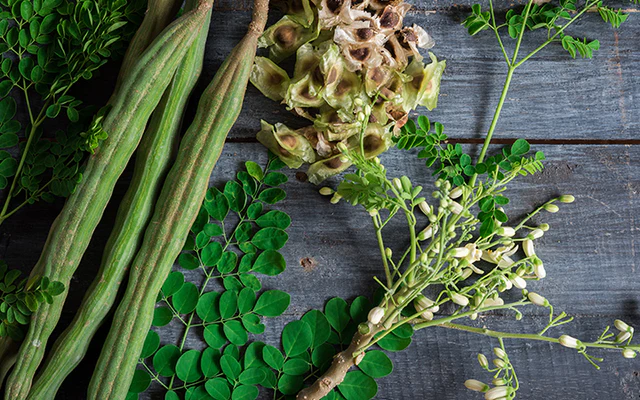
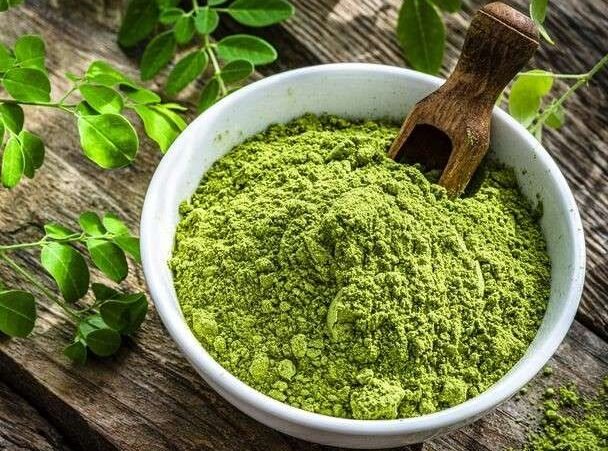
10 Health Benefits of Moringa, According to Nutritionists
- No matter what you call Moringa oleifera — also known as “drumstick tree,” “tree of life,” and “miracle tree” — it’s one of the most nutritious plants in the world. It has a wide range of nutritional and bioactive compounds, including essential amino acids, carbohydrates, fiber, vitamins, minerals and phytonutrients, making this plant a powerful one.
- The seeds, leaves, and roots of Moringa are all loaded with numerous nutritional properties and medical benefits. Moringa leaves are a rich source of protein, vitamins and minerals.
- Medicine Benefits of Gale of Drumstick Leaf Powder :
Moringa leaf powder is good at reducing symptoms of depression and anxiety. - This powder has several beneficial effects, including helping you increase your energy and stamina as well as sharpening your focus.
fenugreek coffee

Fenugreek seeds is powdered and then mixed with powdered home- grown roasted coffee beans .
- Fenugreek is one of the oldest medicinal plants with exceptional medicinal and nutritional profile. Fenugreek seeds contain a substantial amount of fiber, phospholipids, glycolipids, oleic acid, linolenic acid, linoleic acid, choline, vitamins A, B1, B2, C, nicotinic acid, niacin, and many other functional elements.
- Fenugreek seeds are a rich source of fiber (50–65 g/100 g) mainly non-starch polysaccharides (Table 1; Montgomery, 2009). Medicinally, fenugreek fiber is capable of moderating the human glucose metabolism. Moreover, mucilage, tannins, pectin and hemicellulose inhibit bile salt absorption in the colon and hence facilitate low density lipoprotein-cholesterol (LDL) reduction in blood. It binds the toxins of food and indirectly protects intestinal epithelial membrane from onset of cancer. Moreover, it helps to lower the blood glucose absorption and control sugar level, and thus facilitates the insulin action.
- Fenugreek seed is a rich source of vitamins viz. choline, vitamin A, B1, B2, C, nicotinic acid and niacin (Table 3). Germinating seeds contain biotin, calcium pantothenate, pyridoxine, vitamin C and cyanocobalamine.
chuuk coffee
CHUUK KAPI (A HERBAL COFFEE WITH DRY GINGER, CUMIN, HOLY BASIL AND BLACK PEPPER FROM GOD”S OWN COUNTRY).
- Every monsoon, the rains typically bring with them colds, coughs and fevers that are mostly a result of getting wet. For many of us Indians, the first line of treatment is recourse to traditional fail proof home remedies that we grew up with. In my home state of Kerala, our home remedies have their origins in Ayurvedic texts and prescriptions and some of them are still my go to solutions for simple maladies like colds, mouth ulcers, non-serious knife accidents in the kitchen and sore throats.
- One traditional home remedy that is still very popularly used to makes short work of the monsoon sniffles, mild throat aches and coughs and is especially soothing to the throat is “Chuuk Kapi “ which loosely translates as “Dry Ginger Coffee”. A steaming hot cup of this coffee which is taken without milk, but spiced with goodness of dried ginger (Chuuk),
- Most home remedies including Chuuk Kapi, used in Homes in Kerala have their origin in Ayurveda. While fresh ginger is known for its digestion friendly properties, in the dry form it helps in relief from colds and respiratory illnesses. Black pepper has an expectorant quality and provides relief from cold, coughs, sinusitis and nasal congestion. Cumin aids digestion and has anti-inflammatory and immunity boosting properties, while the Indian/ Holy basil has many medicinal qualities and is very effective for fever, coughs, bronchitis and other diseases of lungs.

TEA from GOD’S OWN COUNTRY
Rose flavored Classic Green Tea
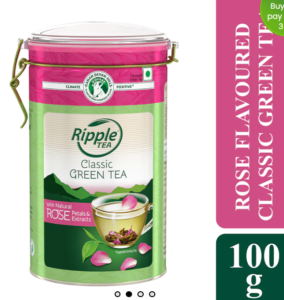
Classic Green Teas with Natural ROSE PETALS & Extracts
Immerse yourself in this exquisitely fragrant tea from God’s own country( Kerala) – India. These teas are specially processed using hand-picked tender one leaf and a bud. Immerse yourself in this exquisitely fragrant Munnar tea, which is exclusively processed using hand-picked tender one leaf and a bud. Its subtle and delicate taste is a delight to a tea connoisseur’s taste buds.
Preparation: Add one teaspoon of Green Tea Classic into a pan, Measure one cup of water and add into the pan, Bring the water to first boil (80 degree), Pour the water over the leaves and steep for 2 mins, Strain the tea leaves, Ready to drink, Green tea with Natural Rose petals & Extracts is best consumed without milk and sugar, However, honey can be added for taste.
Exotica
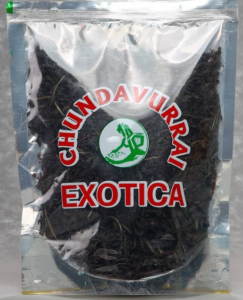
Exotica tea is conventional orthodox production at the high grown region of God’s own country is an golden translucent yellow cup with intense aroma and high grown character energizes you with a refreshing cup after a full day’s tiredness and again reactivates you.
Iced Green Tea
Peach Flavored
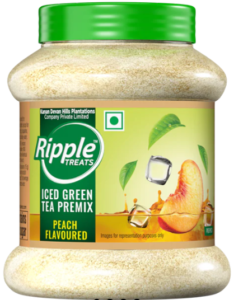
Iced BLACK Tea
Peach Flavored
